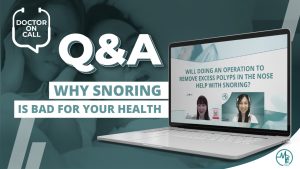This article first appeared on Physioactive blog.
The rewards of working out can be extremely satisfying when you see changes in your body. Seeing the defined lines of your muscles appearing or noticing how much more functional you are in your daily life makes all that sweat and occasional tears worth it. Suddenly, a business trip or family vacation threatens to put your exercise regime on hold! Or worse still, an overwhelming influx of work stops you from attending to your health habits. How long can one stay away from exercise without kissing their sweet gains goodbye?
PSA: Medical Channel Asia (MCA) is now on Telegram! Join us here https://t.me/MedicalChannelAsia for daily reads and the latest updates at your fingertips!
When Does Your Body Start Losing the Effects of Exercise?
When one stops training, the effects of stopping exercise can be seen as soon as 2 weeks in. This can be felt initially by a reduction in muscular endurance, muscular power and then muscular strength. Muscular power differs from muscular strength in the added element of speed as opposed to just the amount of force exerted. Even though the generic period of time stated is 2 weeks, this time frame differs from person to person according to various factors such as age, type of training, level of fitness etc.
Why Can’t Your Body Retain Its Gains?
When you exercise, your body adapts to the task and builds it to withstand the physical strain the exercise loads on your body. Your capillaries enlarge to increase blood flow, providing oxygen and other nutrients needed for your training. Muscles grow under the stress to prepare for heavier loads; The more your muscles adapt to the stress, the more efficient it becomes in dealing with the same stress. When the stimulus is gone, the body has no need to keep its build to counter the stimulus. Thus, your body starts to recognise the redundancy of excess muscles and begin its atrophy.
What Can You Do Then?
You may not have the time nor resources available under some circumstances to push yourself with increased stimuli for more gains, especially if you are situated away from a gym or your training grounds. However, if you do not completely cut out training, you may at least be able to maintain what you have built. Your body starts to revert to its pre-training state in the absence of stimuli, therefore, instead of removing all forms of work-out for that period of time, some exercise is better than none even if the intensity is not enough to build more gains.
What If an Injury Caused Me to Stop Training?
If the onset of injury is what stopped your training regime, it is crucial to note that rest is essential for expedited healing. Creating unnecessary stress at the site of injury can worsen its state and increase recovery time. Even then, trained professionals such as physiotherapists are able to help work around the injury safely and even build up surrounding muscles to support recovery. These physical therapies are programmed to aid the patient through different stages of recovery which include maintenance work post-injury as well. The absence of symptoms may fool you into dropping the prescribed exercises, but a continuous investment is the only way to ensure you stay symptom-free without fear of relapse.












